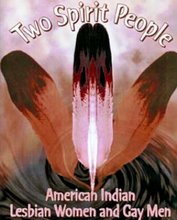Civil rights pioneer embraced cause of same-sex marriage
IT IS A rare privilege to meet a person whose life has had a profound effect on the shaping of history. Last May, our organization's founder, Mitchell Gold, along with myself and another colleague, were offered that opportunity as we spent a warm and breezy afternoon with Mildred Loving.
Our visit preceded a celebration of the 40th anniversary of the Supreme Court's decision in Loving v. Virginia. Faith in America sponsored the event and organized it along with Freedom to Marry and numerous other civil rights advocacy groups.
As a young black and Native American woman, Mildred married Richard Loving, a white man, in the District of Columbia because interracial marriage was illegal in their native Virginia. The couple returned to Virginia and was arrested in the middle of the night for cohabitation as a married couple.In January 1959, they were convicted and given a sentence of one year in prison, but the judge suspended the sentence upon condition that they leave the state and never return together for 25 years. Several years later, the Lovings sued Virginia to overturn their conviction. After losing the case on appeal to the Supreme Court of Virginia, the couple appealed to the Supreme Court of the United States, which heard oral arguments in 1967.
On June 12 of that year, the Supreme Court ruled that not only did Virginia's miscegenation law violate the Lovings' right to equality protected by the Equal Protection Clause, it also violated their fundamental right to marry as protected by the Due Process Clause. The resulting decision of Loving vs. Virginia struck down the laws of Virginia and 15 other states that banned interracial marriage.
Since the founding of the American colonies and the first importation of Africans as indentured servants and slaves, marriage between blacks and whites was illegal in America. Maryland instituted the first criminal law to that effect in 1664. They were among some of the oldest laws in America.
DURING LAST YEAR’S celebration of the decision in Washington, Faith in America drew attention to words written by a Virginia appeals court judge in the case in 1965: "Almighty God created the races white, black, yellow, malay and red and he placed them on separate continents."
Our intent in drawing attention to that statement was to show how religion-based bigotry was once used as a moral and religious stamp of approval in preventing Mildred and Richard from uniting their lives in marriage. We also intended to show that rejection, aspersion and discrimination receives the same religious and moral stamp of approval in America today as it relates to not only gays and lesbians having the right to marry and other rights but also to their very being.
During our visit with Mildred on that warm afternoon in rural Virginia last May, we asked her how she reacted 40 years ago when she read the words of that judge. I recall noticing a worn Bible resting near her that afternoon as she responded.
Read more:
Subscribe to:
Post Comments (Atom)
















No comments:
Post a Comment